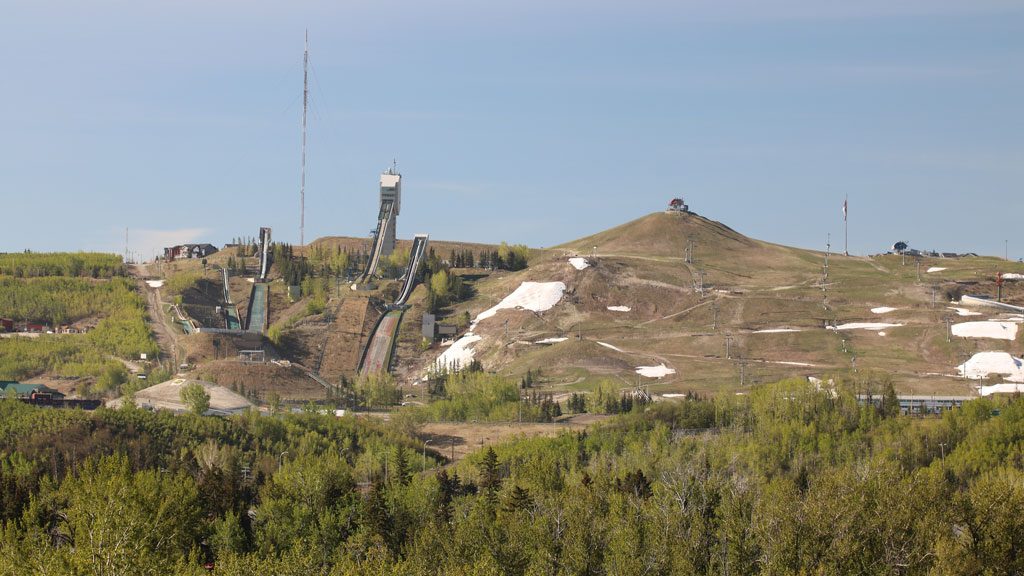Alberta construction industry stakeholders are expressing dismay at CalgaryŌĆÖs ŌĆ£noŌĆØ vote for a new Olympic bid.
While Calgary City Council initially supported a bid for the city to host the 2026 Olympic Games, a Nov. 13 plebiscite resulted in a ŌĆ£noŌĆØ from 56 per cent of Calgary voters, ending the bid. City council then voted unanimously on Nov. 19 to wind down the bid corporation and have it report on details of the bid process.
Calgary Construction Association (CCA) president Bill Black said the organization ŌĆ£very much took the position of supporting the bid because it would have provided opportunities and jobs.
ŌĆ£We felt the city needed a stimulus in general and there wasnŌĆÖt much of a sign of another one coming anytime soon,ŌĆØ Black said.
ŌĆ£It would have had a positive focus for the city to rise out of the doldrums itŌĆÖs in right now and might have had a halo effect.ŌĆØ
Black said the CCA held their own event in support of the bid with 170 members and non-members in attendance at the Studio Bell space in downtown Calgary as well as running a radio commercial supporting the bid.
ŌĆ£The message we had was that within the Calgary construction industry we have organizations with skill, experience and the resources to deliver on time and on budget,ŌĆØ Black said.
While there are infrastructure projects on the horizon for the city, much of it is specialized and outside of local capabilities, he explained.
ŌĆ£We have the Green Line coming, but a lot of high-volume work associated with that is highly specialized civil engineering work potentially carried out by out of town or out of country operations,ŌĆØ he said.
ŌĆ£There arenŌĆÖt many companies in Calgary with a 13-metre boring machine waiting to be used.ŌĆØ
Alberta Construction Association (ACA) chair Paul Heyens said his organization was also disappointed with the results of the Calgary vote.
ŌĆ£There was optimism that an award of going ahead with the Olympics might be just the kick-start the construction economy needed towards a more optimistic outlook,ŌĆØ Heyens said, adding the Olympics could have been an economic boost across the province.
ŌĆ£The economics made a very compelling case for a successful Olympics, coupled with the input to infrastructure and facilities for Calgary companies specifically, but also for companies throughout the province. It would have been a welcome boost over the next eight years.ŌĆØ
Some facilities built for the 1988 Calgary Winter Olympics need renewal and rebuilding, he added, but a successful 2026 bid would have also meant additional buildings and work. Venues from the 1988 Games are still used today by recreational and high-performance athletes, which was another factor in driving the bid forward.
The bid corporation estimated the total cost of hosting the Games at $5.1 billion and asked for a $2.875 billion contribution split between the city, provincial and federal governments.
The Alberta government committed $700 million and the Canadian government $1.45 billion, with the city being asked to contribute $390 million.
A 2026 cost-sharing agreement between the federal, provincial and municipal governments wasnŌĆÖt finalized until Oct. 31.
Despite the ŌĆ£noŌĆØ vote, Heyens remains optimistic the Alberta construction industry will continue to find large-scale work.
ŌĆ£There needs to be a focused infrastructure spend throughout the province, and the ACA would hope that focus would shift to those projects, whether itŌĆÖs the Green Line, public facilities or other infrastructure projects,ŌĆØ he said. ŌĆ£All is not lost, but the focus is shifting onto other things.ŌĆØ
Black reinforced his associationŌĆÖs commitment to the industry regardless of economic climate.
ŌĆ£We have to direct our energies from the CCA perspective to continue to look for ways that industry can find opportunity, really focus on our members and where theyŌĆÖre at, and become a resource for our members in this kind of economy,ŌĆØ Black said.
ŌĆ£WeŌĆÖre reaching out to schools and youth, because even in a tight economy, there are more people retiring than coming into the industry and we need to build a resource base.ŌĆØ
ŌĆö With files from the Canadian Press











Recent Comments
comments for this post are closed